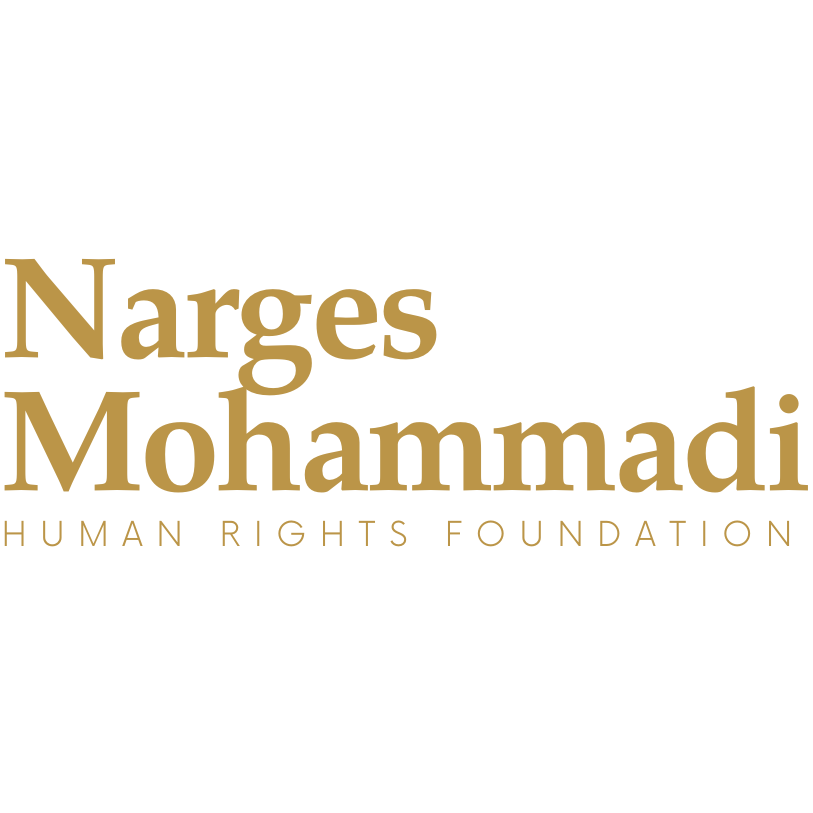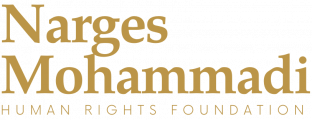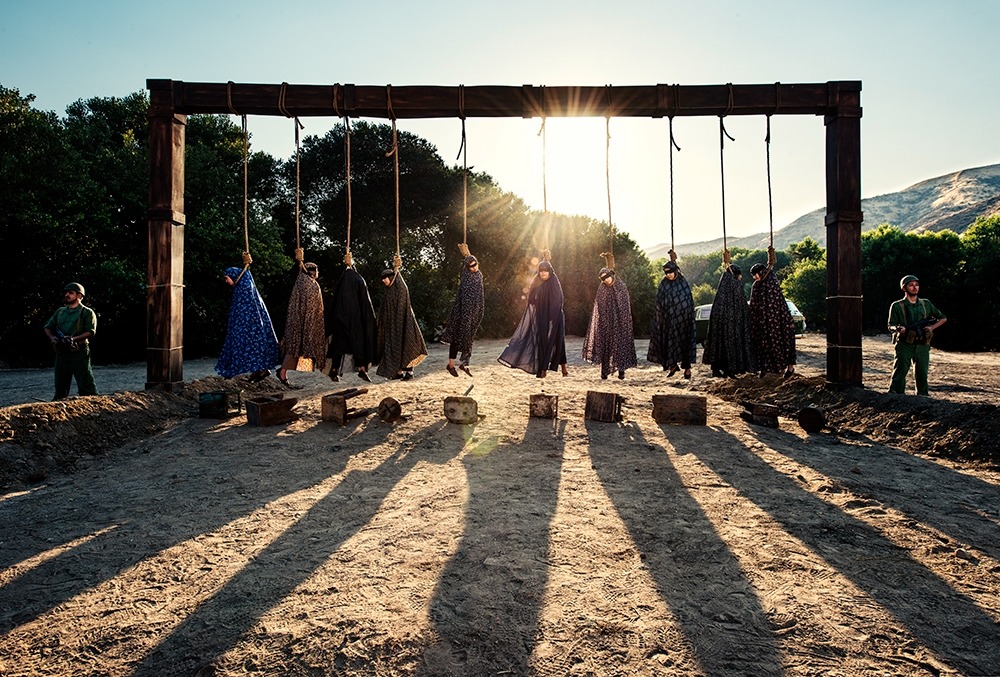
10 Political Prisoners Express Solidarity with the Bahai Community in Iran Facing Intense Pressure
Our differences in political views and beliefs have never, do not, and will never obstruct our support for human rights. Silence in the face of oppression only emboldens the regime, making its actions less costly and leading to repeated and intensified abuses.
Our Baha’i compatriots have been deprived of all social rights for decades under tyranny. In the 1980s, with the catastrophic elimination of political opponents and dissidents, nearly three hundred of our Baha’i compatriots were disappeared, went missing, or were executed by the government, and thousands more were deprived of the most basic social rights and driven from their homes.
One of the most shocking stories we have heard from the Baha’i community relates to the execution of 10 women in the 1980s who were taken to the execution site together and executed one by one in front of each other’s eyes. The last of them was an underage teenager (who is considered a child according to international treaties) who, before her arrest, was studying and teaching young children. Her only conflict with the system was a belief that had no manifestation in her social life.
After years of imprisonment alongside Baha’i women, witnessing the relentless pressures and injustices they endure for their beliefs, and hearing their stories across generations, we unequivocally recognize that “our story is identical.”
We who have always been excluded from various social and political arenas in different ways due to differing political or ideological views, and some of us have been deprived of the right to life. Deprivation of the right to life and denial of social, civil rights, and consequently the confiscation or destruction of Baha’i properties has long occurred and has become a norm for the repressive system. Hearing the story of a mother in a village in northern Iran, with a worn-out face and a bent back, who was attacked by destroyers while working on her farm, trying to prevent officials from destroying her garden and home, was a great sorrow. A mother who had lost her child in the Iran-Iraq war and now, because of her belief, had her land, home, and the source of her livelihood, the result of a lifetime of work, destroyed, deprived, or withheld from her.
We have had years of experience living with Mahvash Sabet, Fariba Kamalabadi, and other Baha’i citizens, and we have learned a lot from them. Besides what has been imposed on them and their families due to years of imprisonment, depriving society of their presence and teachings is a great loss. Our silence in the face of this oppression against a group of society whose mere existence as Baha’i citizens has been criminalized has made these crimes less costly for the regime and paved the way for their repetition and intensification.
Differences in our political views and beliefs have never, do not, and will never hinder our support for human rights. Just as we have united against repression despite our political and ideological differences, turning the streets of Iran into a battleground for justice, we stand together now.
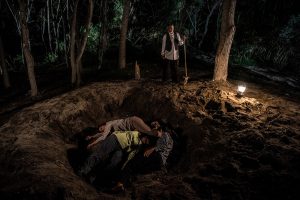
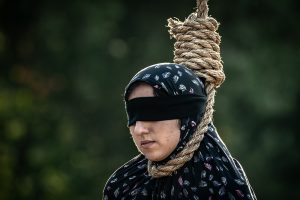
We stand by our Baha’i compatriots until the end of suffering imposed on them.
Mahboubeh Rezayi, Hasti Amiri, Samaneh Asghari, Sakineh Parvaneh, Maryam Yahyaei, Nahid Taghavi, Narges Mohammadi, Anisha Assadollahi, Sepideh Gholian, Golrokh Iraee
June 17, 2024
Women’s Ward,
Evin Prison Iran
The photograph by Ramin Barzegar reconstructs the scene of the execution of 10 women in the 1980s. They were taken to the execution site together and executed one by one in front of each other’s eyes.
تضاد در دیدگاهِ سیاسی و باورهامان مانعی بر حمایت از “حق” نبوده، نیست و نخواهد بود؛ و سکوتمان در برابر ستم، اِعمالِ آنرا برای رژیم کمهزینه کرده و موجب تکرار و تشدیدِ فشارها خواهد شد.
هموطنان بهائیمان طی دههها استبداد همواره از تمام حقوق اجتماعی محروم بودهاند.
در دههی شصت و با حذف فاجعه بار مخالفان سیاسی و دگراندیشان، نزدیک به سیصد نفر از هموطنان بهائیمان توسط حکومت سر به نیست، مفقودالاثر یا اعدام شدند و هزاران نفر نیز بیبهره از کمترین حقوق اجتماعی از خانههای خود بیرون رانده شدند.
یکی از تکاندهندهترین روایتهایی که از جامعهی بهائی شنیدهایم، مربوط به اجرای حکم ۱۰ زن در دههی شصت است که با هم به قتلگاه برده شدند و در مقابل چشم دیگری به ترتیب اعدام شدند. تا آخرینشان که نوجوانی زیر ۱۸ سال بود (که طبق معاهدههای بینالمللی کودک محسوب میشود) و پیش از بازداشت مشغول به تحصیل بود و تدریس به کودکان خردسال. نوجوانی که تنها تضادش با سیستم باور و عقیدهای بود که در زندگی اجتماعیاش نیز نمودی نداشت.
با سالها حبس و همزیستی با زنان بهائی و مشاهدهی فشارها و محرومیتهایی که به سبب تفاوت عقیده، بر خود و خانوادههاشان تحمیل شد و شنیدنِ روایتهاشان از گذشته تا کنون؛ و قیاسِ آن با آنچه همواره بر دگراندیشان تحمیل میشود؛ درمییابیم که به واقع “داستان ما یکیست”.
ما که همواره به سبب تفاوت دیدگاه سیاسی یا عقیدتی به طرق مختلف از عرصههای مختلف اجتماعی و سیاسی حذفمان کردهاند و برخی مان را از حق حیات محروم نمودهاند.
سلب حق حیات و محروم کردن از حقوق اجتماعی، شهروندی، مدنی و در پیِ آن مصادره یا تخریبِ اموال و داشتههای بهائیان از دیرباز رُخ میداد و به روالی برای سیستمِ سرکوبگر بدل شد.
شنیدنِ روایتِ مادری در یکی از روستاهای شمال ایران که با چهرهای رنج کشیده و کمری خمیده در حین کار بر زمین کشاورزی مورد هجومِ تخریبگران قرار گرفته بود و تلاش میکرد ماموران را از تخریب باغ و کاشانهاش منع کند؛ اندوه بزرگی بود. مادری که فرزندش را در جنگ ایران و عراق از دست داده بود و حالا نیز به سبب عقیدهای موردِ کینِ رژیم، خاکش را، خانهاش را و زمینی که منبع معاش و ماحصلِ یک عمر زندگیاش بود را ویران، بیبهره یا از او دریغ کردند.
ما سالها تجربهی زیستن با مهوش ثابت و فریبا کمالآبادی و دیگر شهروندانِ بهائی را داشتهایم و بسیار از آنان آموختهایم.
علاوه بر آنچه که بر خود و خانوادههایشان به سبب سالها حبس تحمیل شده است، محروم کردنِ جامعه از حضور و آموزههایشان، رنجی گران است.
سکوتِ ما در برابر این ستمِ مضاعف بر گروهی از جامعه که حتا زیستنشان نیز به عنوان شهروندانِ بهائی جرمانگاری شده است، این جنایات را برای رژیم کمهزینه کرده است و راه را برای تکرار و تشدیدِ آن هموار مینماید.
تضاد در دیدگاه سیاسی یا باورهامان مانعی نبوده، نیست و نخواهد بود بر حمایت از “حق”.
همانگونه که با تضادهای سیاسی و عقیدتی در برابر سرکوب ایستادهایم و کف خیابانهای ایران را به عرصهای برای مطالبهی “حق” بدل کردهایم، حال نیز در کنار هم هستیم.
تا پایان دادن به رنج مضاعفی که بر هموطنان بهائیمان تحمیل میشود در کنارشان ایستادهایم.
محبوبه رضایی
هستی امیری
سمانه اصغری
سکینه پروانه
مریم یحیوی
ناهید تقوی
نرگس محمدی
آنیشا اسداللهی
سپیده قلیان
گلرخ ایرایی
۲۸ خرداد ۱۴۰۳
بند زنان زندان اوین

